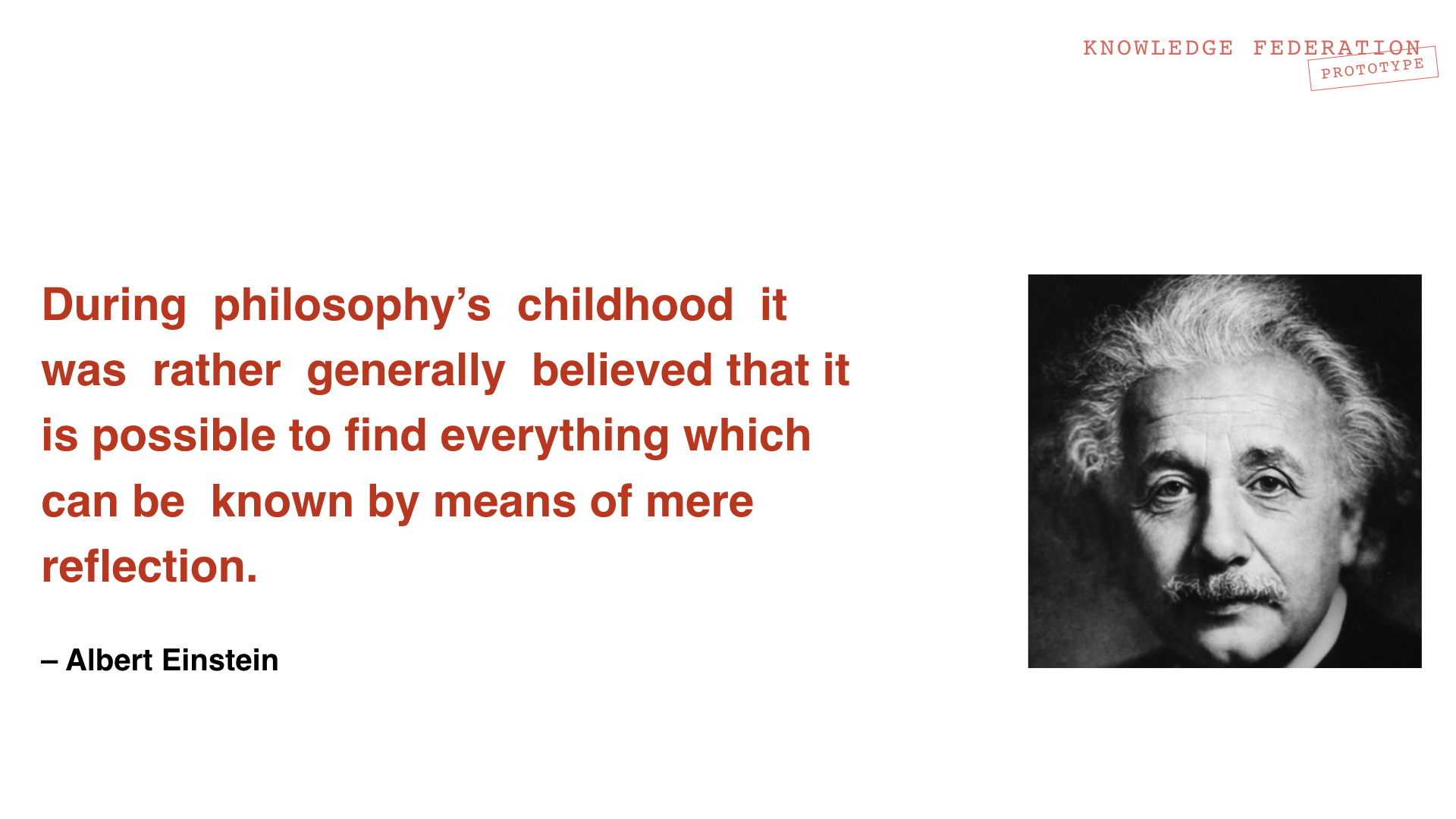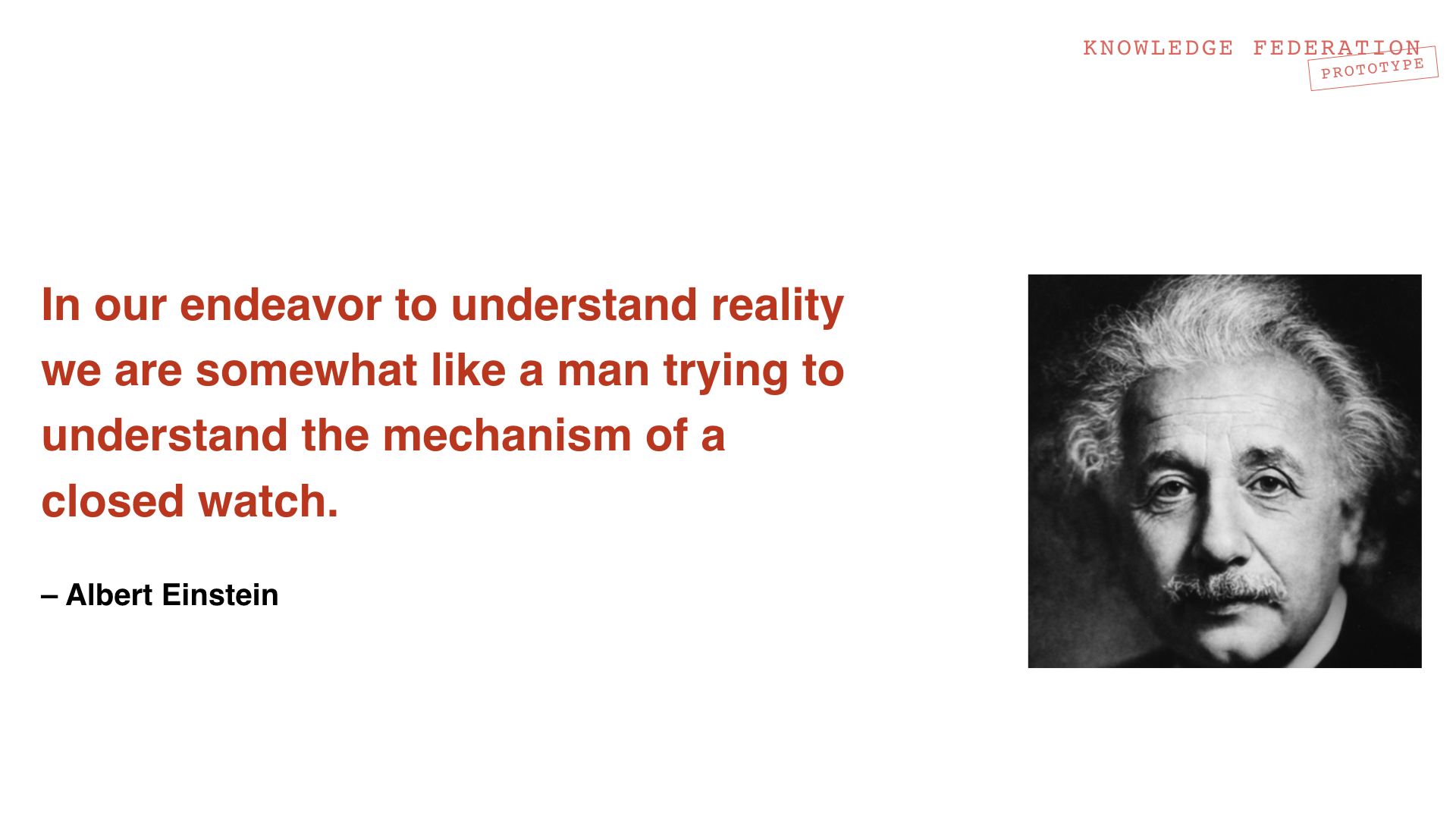Holotopia: Socialized reality
Contents
H O L O T O P I A: F I V E I N S I G H T S
Socialized reality
Let us federate our culture's foundations
Werner Kollath, Erich Jantsch, Douglas Engelbart, Werner Heisenberg and other 20th century's thinkers who saw elements of an emerging paradigm made their appeals to academia. With astonishing consistency, they were ignored.
It is the academia's privileged social role to decide what ideas will be explored taught at universities, and given citizenship rights. The standards for right knowledge, which the academia upholds in our society, decide what education, public informing, and general information consumption will be like.
What are those standards? What are they based on?
Nobody knows!
The foundations on which truth and meaning are created in our society, and which determine our cultural praxis, are composed of vague notions (such as that science provides an "objectively true picture of reality") and historical prejudices.
During the 20th century a wealth of insights have been reached in the sciences, humanities and philosophy, which challenged or disproved the age-old beliefs based on which our culture's foundations have evolved.
They too remained ignored!
If you interpret what follows as a proposal for new foundations, you will be right in the old paradigm, but mistaken in the new one we are proposing.
The point here is to initiate a social process by which our foundations are continuously improved. Think of it as the reversal of the trials of Galilei and Socrates. This central issue is no longer decided "behind the closed door"; it is made a subject of a public process, akin to the traditional "trial by jury".
Our destination is not to only observe and describe a certain state of affaires—but to initiate a social process by which this state of affaires will be reversed. Hence everything that is said here is just prototypes—created to ignite this process.
Stories
"Reality" is a myth
From the traditional culture, we've inherited a myth incomparably more subversive than the myth of creation. This myth serves as the foundation stone on which the edifice of our culture is being erected.
"Correspondence with reality" cannot be verified
See the argument by Einstein and Infeld, from "The Evolution of Physics", which we summarized here. </p>
"Correspondence with reality" is a product of illusion
How, then, do we judge whether our ideas or models "correspond to reality"?
In "Remarks on Bertrand Russell's Theory of Knowledge", Einstein pointed out that our favored approaches are results of illusions.

"It was an illusion which any one can easily understand if, for a moment, he dismisses what he has learned from later philosophy, and from natural science (...). Someone, indeed, might even raise the question whether, without something of this illusion, anything really great can be achieved in the realm of philosophical thought—but we do not wish to ask that question."
File:File:Einstein-Illusion2.jpeg
"This illusion dominates the daily life of men and animals; it is also the point of departure in all of the sciences, especially of the natural sciences."
This question must then be asked:
If "correspondence with reality" is a property that cannot be verified, which is itself prone to lead us to illusions—can we really use it to distinguish truth from illusion (which is, allegedly, the value proposition of the academic approach to knowledge)?

